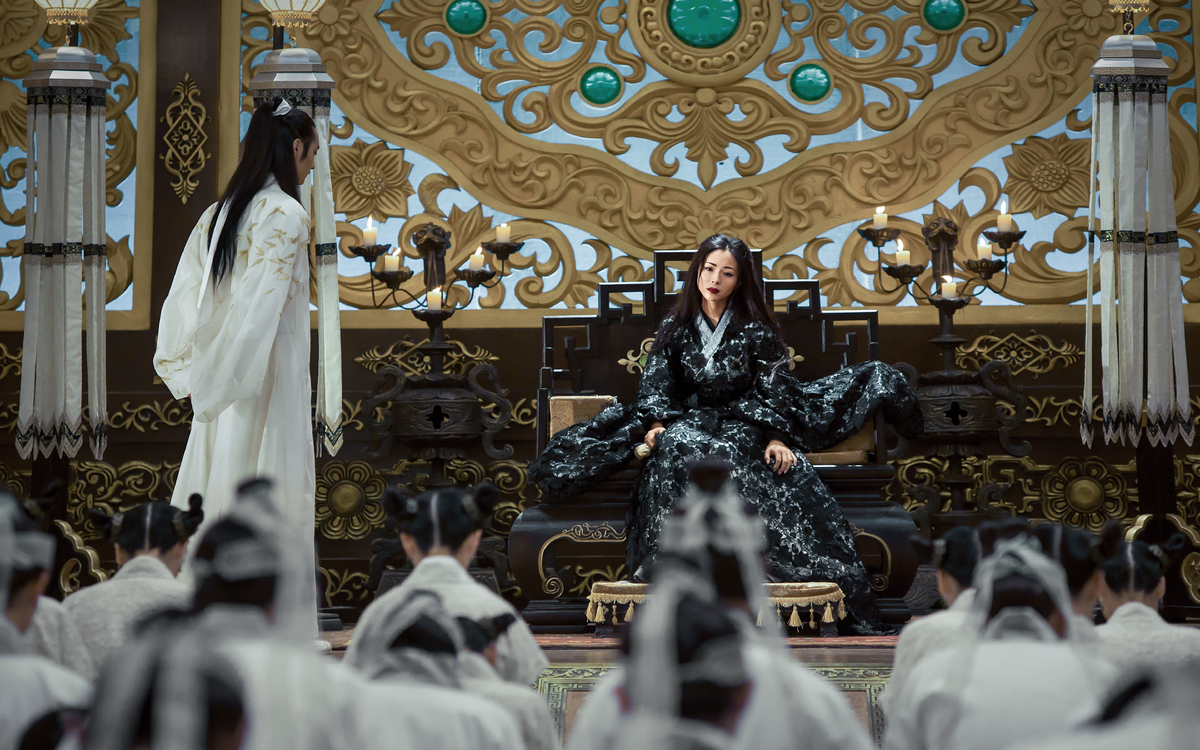FILM REVIEWS
Every day while CFI’s Hollywood readers take in the business of the Chinese film industry, the actual movies can sometimes seem exotic or remote. But in major US cities, mainstream Chinese films are increasingly available: thanks to Wanda’s purchase of AMC and distributors like China Lion, they get American theatrical releases practically simultaneous to their premieres at home. Though they receive virtually no publicity outside the non-Chinese community, these films are more than worth seeking out by anyone serious about engaging the Chinese industry, understanding the Chinese sensibility and familiarizing themselves with China’s talent pool. Periodically, CFI will review and point readers in the direction of noteworthy US releases of contemporary commercial and independent Chinese titles.
Virtuosity and utter WTF
Sword Master (2016), directed by Derek Yee; Produced by Tsui Hark; Screenplay by Tsui Hark, Derek Yee and Chun Tin-nam.
Distributed by Well Go USA, opens in the US December 9, 2016 (cinemas here).
Grade: C
People sometimes ask when the Chinese are going to start making superhero movies, but kung fu and swordsman legends are Chinese superhero stories, and wuxia and martial arts serials, novels, films, and television series have been wildly popular in China and Hong Kong since the first Republican era in the 1910s.
Like Western stories of medieval knights, or Japanese samurai tales, there can be something antiquated or quaint about them, but every generation finds a way to take this material and make it modern. In the 1980s, the wuxia and martial arts genres received a jolt from Hong Kong’s new wave auteur Tsui Hark, infusing films like Peking Opera Blues, Swordsman, and the Once Upon a Time in China series with a pop sensibility, MTV editing, and a political charge (Tsui also made Jet Li an international superstar). The mark this work left has continued through to today in scores of films by protégés, imitators and Hark himself, made in both Hong Kong, and more frequently in recent years in China.
The international success of Ang Lee’s Crouching Tiger, Hidden Dragon has also spurred Chinese producers to continue making these films in the hope of achieving some of Lee’s returns, and the latest wave of these stories incorporate current CG innovations, the special effects and thematics of Marvel Studios films, and visual touches inspired by Tim Burton, Christopher Nolan, and Peter Jackson’s Lord of the Rings trilogy—thus making them even more like superhero films.
The newest of these, Sword Master, which premiered in Beijing two weeks ago and begins a US theatrical run Friday, December 9, represents one of Hark’s periodic contemporary glosses on earlier work (in recent years, he has remade both Zu: Warriors of Magic Mountain and New Dragon Gate Inn), this time in collaboration with Derek Yee, one of Hong Kong’s leading action/thriller directors. Hark produces and Yee directs (Yee’s 2009 film, Shinjuku Incident is one of the better crime dramas to come out of Hong Kong in the past decade).
Based on a novel by the wuxia icon Gu Long, Sword Master tells the story of a virtuoso swordsman, weary of the toll taken on his spirit by violence and bloodshed, who is pulled out of the monastic life he tries to adopt. It is also a remake of Death Duel, a classic and lurid Shaw Brothers production from 1979, in which Yee appeared as the protagonist. Ergo, it is additionally something of a personal project.
Which makes it all the more regrettable to report that it is something of a mess. Coherence has never been one of Tsui’s strong points: even his best and most enjoyable films are prone to wild oscillation between virtuosity and utter WTF, and that factor can often undermine the lesser work. In this case, delirium takes a back seat to what feel like more rote genre elements, awkward cross-cutting and time-shifting, and a harsh digital color palette that makes what should be gorgeously placid mountain and country landscapes difficult to look at after too long. The villain’s hair and facial makeup render him a cross between Edward Scissorhands and Heath Ledger’s Joker, while the schematics that underlie the warring clans in the story feel more out of Tolkien than anything Chinese.
Some of the battle scenes possess a true balletic grace—and here the film’s domestic distributor Well Go USA may have erred in releasing the film in a conventional two-dimensional format instead of the 3D in which it was made. Tsui’s prior 3D productions, including Flying Swords of Dragon Gate are daringly conceived, with an extreme and thrilling approach to stereo imaging that Hollywood films have generally been too conservative to implement. Reviews out of Hong Kong cite the 3D in this film as one of its real achievements, and it is possible that the flatness I perceive in the two-dimensional scenery is a consequence of Well Go’s technical choice. (That said, the brain is a sensitive organ, and I am also prone to digital fatigue in big-budget Hollywood movies with inelegantly integrated effects or crude color grading).
As well, while the film’s young cast is engaging, none of the principals exude true star power, and it is to the detriment of the piece. In 2014, when the film’s cast was announced and fans on social media wondered why no big names had been hired, Derek Yee posted on Weibo:
“If a collaboration between Tsui Hark and I still need big stars to get you to waste your time and spend your money on a ticket, then we might as well pack up, go home, drink whiskey and shoot the breeze … It doesn’t matter who’s acting in the film. Tsui Hark and I are the top stars of the film!”
In this case, I don’t know if I’d want to say I wish Tsui and Yee had retired to the bar, but I do hope for more from each of them next time out.






